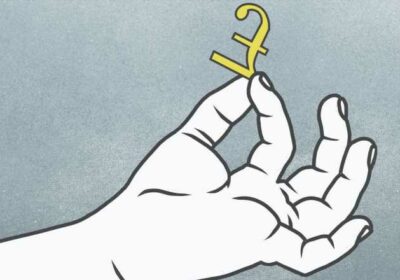Do you struggle with instant gratification? Here’s how to stop it messing with your finances

Written by Lauren Geall
As Stylist’s digital writer, Lauren Geall writes on topics including mental health, wellbeing and work. She’s also a big fan of houseplants and likes to dabble in film and TV from time-to-time.
Do you struggle with a need for instant gratification? Here’s how that could be affecting your finances – and what you can do about it.
Thanks to the advent of modern technology, we can now buy things more quickly and efficiently than ever. From next-day delivery and click and collect services to ride-hailing apps and online grocery hauls which take less than 30 minutes to arrive, we no longer have to wait to get the things we want into our hands.
But could all of this actually be making us more impatient? And could our need for instant gratification be costing us more than the express delivery charge? New research from HSBC indicates the answer could be yes.
According to the survey of 2,000 UK adults, almost half of British people say the modern world has made them develop a ‘want it now’ attitude, with two in five confessing to feeling impatient in life.
And while this impatience may seem harmless on the surface, it’s actually taking its toll on our financial wellbeing – four in 10 people are now willing to spend more money to get the things they want sooner as opposed to waiting to make a saving, and one in five young adults (between the ages of 18-34) said the time it takes to see returns would put them off investing.
Nic, 23, says she’s someone who would spend more to get an item quicker. As well as regularly paying for next-day delivery, she also pays for annual delivery subscriptions on some retail websites.
“I’ll pay more [to get something quicker] for sure,” she explains. “I’m bipolar so any manic episode will see me spend recklessly – it’s more controlled since I’ve been medicated but it’s still really hard to reel in.”
She continues: “I’m trying to tell myself I don’t need any real savings yet because I’m young, but to be honest it does make me nervous.”
Jess, 24, also struggles with a need for instant gratification. While she says it’s something that’s always affected her, she feels it’s a problem that’s become worse during lockdown, when there were fewer opportunities for her to do things which made her feel good.
“Sometimes I feel like I can justify it when I’ve had a shit week, but it’s very hard even in those circumstances not to feel guilty about it,” she admits. “If I spend too much on short-term things like food or unplanned nights out, I also spend more of my free time thinking how long it is until the end of the month.”
However, Jess highlights that instant gratification isn’t necessarily frivolous, and that spending on things that are ‘short-term’ (e.g. having drinks with friends) shouldn’t be seen as automatically bad or low value.
“The instant gratification of going out for drinks carries value,” she says. “My friends have money so [going out] means I am included and have fun, and that’s good for me in a way that is valid. It’s seen as less responsible on the surface but still important – especially as I live alone.”
In this way, while instant gratification may be costing people financially, it’s important to remember that there are multiple factors at play – and that spending on short-term things isn’t always a symptom of sheer impatience.
However, as the results of the HSBC research show, it’s also clear that we need a balance – especially when our spending is simply a way of pursuing a quick reward and is harming us in the long term.
“Our brains are naturally wired up to enjoy the dopamine hit that comes with achieving instant gratification and this can come from anything in life, including our finances,” explains Jo Hemmings, a behavioural psychologist.
“With the amount of technology we have at our fingertips nowadays, it can often feel easy to chase instant fixes in the hope of a quick reward. But there are a few easy things we can all do in these situations that can help us retrain our brains to focus on self-control and prolong our anticipation so we can achieve a longer-term, potentially safer, gain.”
Five top tips to help you understand and resist instant gratification
In order to change your habits and understand how instant gratification can impact your finances, Hemmings recommends trying the following steps.
1. Get practising
“The ability to resist temptation and stick to our long-term goals is often referred to as willpower or self-control and delaying gratification is a central part of this behaviour,” Hemmings explains. “Practising self-control enables us, like any skill, to get better at it and studies have shown that people who do manage to control their behaviour are happier both in the short and the long-term.”
2. Write down goals and break them down into smaller goals
“This way you’re protecting yourself from instant gratification by making some decisions for yourself beforehand,” she says. “This is very useful when trying to hit financial goals, such as saving to buy a house, or a wedding.”
3. Actions have consequences
“Remind yourself of these,” Hemmings suggests. “Just like self-control can help you achieve your goals and improve your physical and mental health, a lack of self-control can have adverse effects on your self-esteem, education, career, finances, relationships, and overall health and well-being.”
4. Set realistic deadlines
“Work out what you can definitely afford, without unrealistic sacrifices that you may not be able to keep to,” she advises. “Perhaps look at a few extras that you can do without, and you are much more likely to succeed.”
5. Celebrate small gains
“While you don’t want to be extravagant with your hard saved cash, when you hit some of those smaller goals – like saving to a figure that ends in a couple of 00s for example – treat yourself to an evening out or a ‘gift’ to yourself like a takeaway, or the clothes you’ve wanted for a while!” Hemmings recommends.
Images: Getty
Source: Read Full Article

